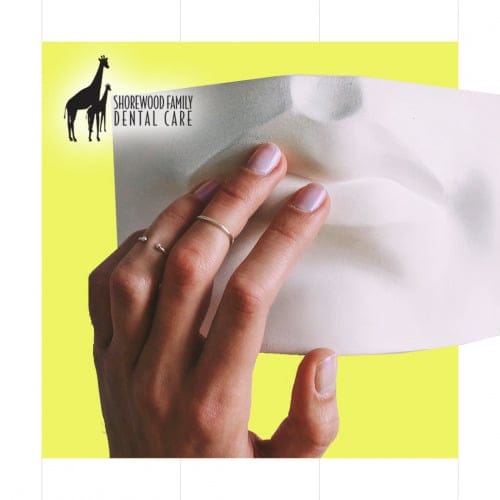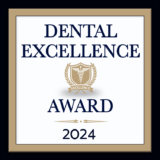
The technical term for nail biting is onychophagia, but when it comes to the impact of the habit on your teeth, the word you need to know is “expensive.” The Academy of General Dentistry estimates that nail biting tooth wear may need an extra $4,000 of dental care. Yikes!
Nail biting is usually thought of as a nervous habit triggered by boredom or stress. In 2012, the American Psychiatric Association categorized nail biting as “pathological grooming.” You can see evidence of the habit amongst all age groups but according to an article in Clinical Pediatrics, 45% of adolescents and 28 to 33% of children between the ages of 7 to 10 years are nail biters.
Nail Biting Effects
Whatever the reason, the long-term effect of the habit on your dental health can be significant.
- Nail Biting Tooth Wear. Constant biting or chewing on nails can wear at tooth enamel, causing damage and even breakage over time.
- Misalignment. Nail biting puts a lot of stress on your teeth, especially the front teeth. The continual pressure can lead to movement of teeth to become crooked. This outcome is especially frustrating if you’ve gone through the process of having teeth straightened with orthodontics only to push them out of alignment.
- Exposure to Germs. Even if you wash your hands regularly, germs and bacteria love to make themselves at home under fingernails. Jagged, sharp nail edges can tear at gums and transfer all those germs, possibly causing infections or gum disease.
- Risk for Teeth Grinding. Nail biting is shown to increase a person’s risk of developing bruxism (chronic teeth grinding), which causes even more dental issues. To learn more, read our previous article on fixing short teeth.
- The Unexpected. Similar to the husks from popcorn, nails can get lodged deep in the space between teeth and gums and require help from a dental professional to remove.
Hard Habit to Break
Like most habits, nail biting is difficult to stop. It’s likely most people don’t even realize they are doing it most of the time. But the risk to your dental health and added treatment costs are compelling reasons to focus on breaking the practice.
Check out these six tips to stop biting your nails offered by the American Academy of Dermatology. If you have questions about how nail biting may be affecting your dental health, don’t hesitate to ask your Shorewood Dental professional.




